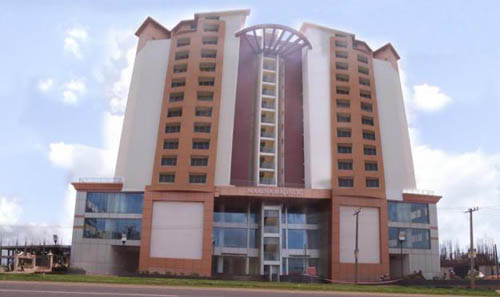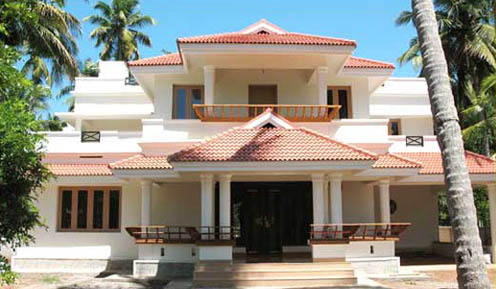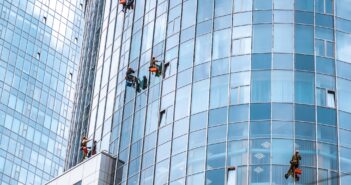
CREDAI Kochi to tackle e-waste menace
Following the footsteps of major cities in the country, Kochi too is marching ahead in its quest to curb the e-waste menace.

Following the footsteps of major cities in the country, Kochi too is marching ahead in its quest to curb the e-waste menace.

Following the Apple A Day scam that left more than 800 customers cheated and homeless, Kerala (CREDAI) will pressurize the Union Government for implementing the Real Estate Regulatory Authority.

The Confederation of Real Estate Developers’ Association of India (CREDAI) has forecasted Kochi to emerge as the next realty hot spot in the wake of the commissioning of the International Container Transshipment Terminal (ICTT ) at Vallarpadam. CREDAI believes the prices of land and buildings are all set to skyrocket as it will generate more direct and indirect employment opportunities.

Office leasing is likely to record a historic high of ~70 mn. sq. ft in CY 2024 across top 9 cities in India as per current estimates, says ‘CBRE India Office Figures Q3 2024’. The last highest office leasing was recorded in CY 2019 at 66.6 mn. sq. ft. The office demand will be driven by both global and domestic occupiers, who are expected to continue expanding their operations and consolidating their facilities to strengthen their market presence. GCCs are poised to expand significantly in India, accounting for about 35-40% of the total office leasing.

Engineering & manufacturing and BFSI occupiers to cumulatively account for ~40% of demand during 2025-27. Repositioning of GCCs as knowledge & innovation hubs will drive ~40% of annual office space demand. Bengaluru dominates demand across most sectors; Hyderabad, Chennai & Pune to gain ground. BFSI occupiers to prefer premium developments, while engineering & manufacturing occupiers are likely to remain cost conscious while expanding real estate.

India continues to experience positive retail growth, attracting foreign retailers to establish a presence in key locations. Charles Tyrwhitt, a men’s luxury fashion brand from the United Kingdom, opened its first store in Ahmedabad. Additionally, Maison Margiela, a French luxury fashion brand, and Franck Provost, a French beauty and wellness brand, entered the Indian market by opening their first stores in Mumbai and Bengaluru, respectively. Other noteworthy expansions include the opening of stores by international brands, such as the Swiss luxury watch brand Breitling and the American luxury fashion brand Michael Kors in Chennai and Pune, respectively. In addition, the Japanese homeware brand Daiso Japan and the skincare and cosmetics brand ILEM Japan also opened stores in Chennai.

Development completions of about 13.2 mn. sq. ft. was witnessed in Apr-June ‘24, up by 49% Q-o-Q, and 11% Y-o-Y. Bengaluru, Mumbai and Hyderabad drove supply addition during the quarter with a cumulative share of about 69%. The non-SEZ segment dominated development completions with a share of 90% in Q2 2024. Developers continued to exhibit their efforts towards sustainability, with over three-fourths of the newly completed space during Q2 2024 being green-certified (LEED or IGBC-rated).

A comprehensive analysis of these cities was done involving assessment of various social, economic, financial, and real estate specific demand & supply side parameters. Colliers conducted a broad-based assessment and developed an objective framework incorporating the above-mentioned parameters to assess their relative degrees of importance and impact on various real estate segments such as office, residential, warehousing, retail, hospitality, and alternatives (data centers, senior living, second homes etc.) in the respective cities.

Soaring economic activity, infrastructure development, and reverse migration are driving double-digit property price appreciation in emerging urban centers of Tier-II cities, says “The Bharat India Report” by Housing.com. Housing.com, has released its inaugural “The Bharat in India” report that highlights remarkable growth trends in Tier-II city real estate markets across the country. It highlights how these once overlooked urban centers are rapidly closing the gap with their Tier-I counterparts. This growth is fuelled by economic diversification, rising consumer demand, and reverse migration patterns accelerated by the pandemic.

The median age of the country is likely to gradually increase from about 29 to 38 by 2050. Similarly, the proportion of aged people (above 60 years) is likely to increase from about 11% in 2024 to 21% in 2050. At the global level, over the next three decades (by 2050), of the 2.1 billion people above 60 years, India would account for a 17% share indicating a significant demand growth for senior care including housing in the country.
